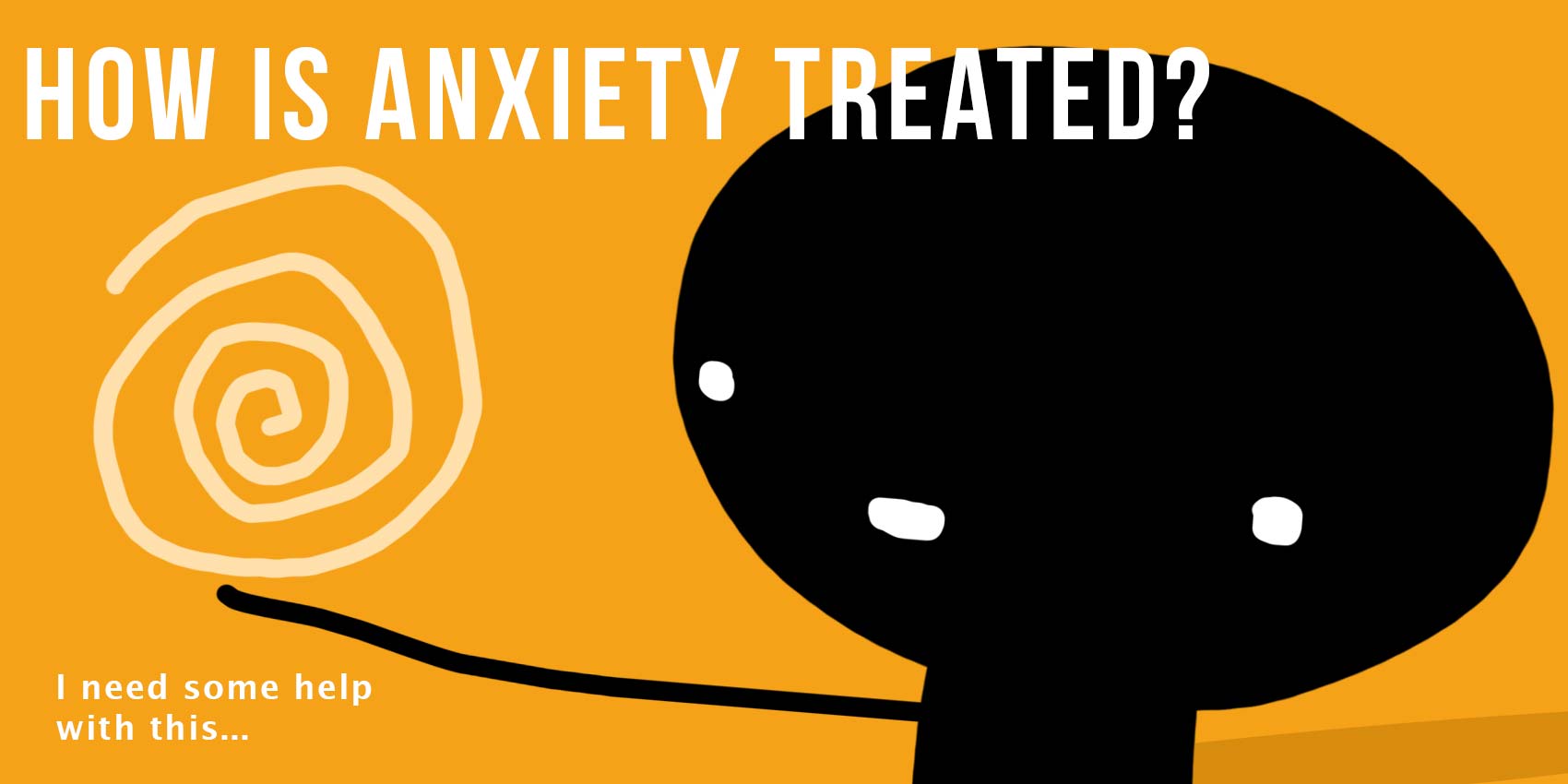14 Nov How is anxiety treated?

Anxiety is treated several ways. All forms of treatment focus on managing our thoughts about and responses to anxiety. Below is a list of common treatments.
Cognitive Behavior Therapy
Cognitive Behavior Therapy (CBT) has proven to have excellent results with people suffering from anxiety. In some cases, it has been more effective than medications.
In Cognitive Behavior Therapy, client and therapist work together to change the thoughts that contribute to anxiety, thus impacting the thoughts/feeling/responses cycle for the positive. For instance, with someone who has test anxiety, and usually thinks I can’t take this test. I am awful at taking tests. I am going to fail, the client and therapist would look to find more beneficial statements for the client, Taking tests may not be easy for me, but I can do it if I try. I may fail but at least I tried. Plus, I have studied so it’s not likely that I will fail. The therapist would help the client with changing some behaviors to help with the test taking anxiety. For example, creating a study schedule, getting a good night’s sleep, organizing notes, and eating well.

Did YOU KNOW? Something about touching soft material actual soothes our worries. So go ahead and snuggle up next time you lose power in a storm!
Exposure therapy
Exposure therapy is used in conjunction with CBT specifically when treating phobias. In exposure therapy, clients with phobias are exposed in gradually increasing degrees of difficulty to the object/situation that causes fear. For instance, for someone with a spider phobia, the client might spend time looking at pictures of spiders first, then toy spiders, then real spiders in a box, to gradually increase their tolerance of being with spiders. Using calming thoughts and the fact that anxiety does diminish over time, clients learn that they can cope with their fears.
DID YOU KNOW Computers are being used to imitate experiences that cause people fear so that by being exposed carefully and over time, people can work through their anxiety-provoking situations virtually. This is exposure therapy gone digital! (We love technology!)

Medication
One way to treat anxiety is with medication (also referred to as drug therapy). Anti-anxiety medications work quite well but must be prescribed and overseen by a doctor as these medications can have side effects and can be addicting. In many cases, when used in conjunction with therapy, medications do not have to be long term. They are instead, a way to “jump-start” the process in tackling the issue.
Finding the right medication that works well for each individual takes time and for some people, medication just does not feel right for them. Everyone is different. Always choose a course that feels right to you once you are fully informed.
Mindfulness and meditation
Meditation and mindfulness are two popular techniques that aid in reducing anxiety.
Basically, meditation is this umbrella term for all sorts of activities and practices that lead to this calm state of mind where emotions do not rule us and we feel at peace and quite purposeful in our daily lives. It includes the practices of yoga, tai chi, silent retreats, and mindfulness.
Mindfulness is the experience of paying close attention to the present moment in an open and accepting manner. The point is to help you become more aware of yourself – your internal dialogues – and to become more accepting of yourself. It’s a no judgment zone! Paying close attention to your breath is a form of mindfulness meditation.
During any form of meditation, the point is to quiet your mind by focusing on something in particular. Any additional thoughts that enter your mind are simply “observed” while you maintain your focus on your breathing and mantra (a repeated phrase of your choice).
Meditation and mindfulness have both been proven to have all types of positive benefits for the mind and body. For someone who is anxious, they are exercises in refocusing the mind in a more beneficial manner.
You can read an entire post on mindfulness since it has proven to be so beneficial. Plus, you can find both mindfulness and meditation techniques in the Stress Reduction post.
If you are suffering from anxiety please make sure to read the Beating Anxiety post next. It will help you to calm that anxiety beast!




WLKHS1205
Posted at 13:49h, 15 OctoberMeditation